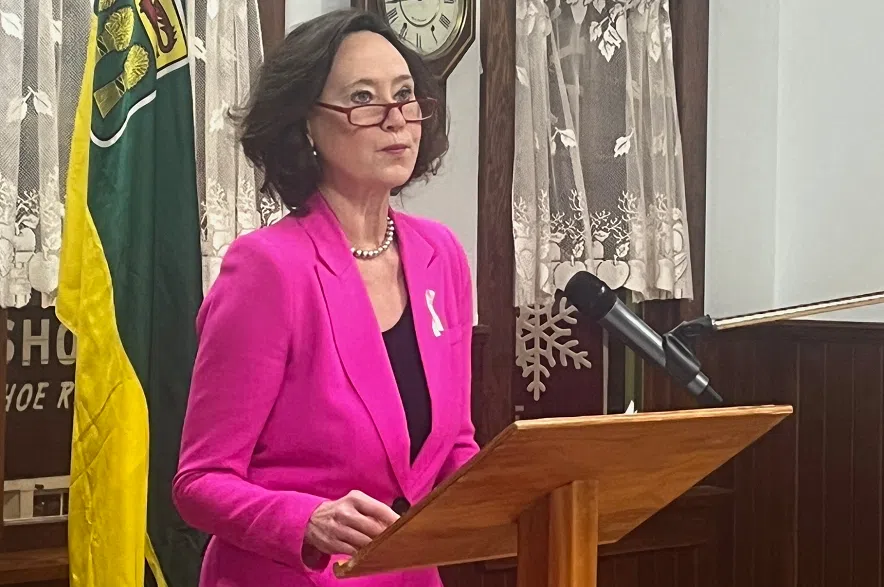A major investment from the province will help survivors of human trafficking.
On Friday, the provincial government announced $1.2 million in funding for Hope Restored Canada (HRC) over the next four years.
Bronwyn Eyre, Saskatchewan’s justice minister and attorney general, said the investment is a collaboration with the federal government through the National Action Plan to End Gender-Based Violence that launched in November of 2022. According to the province, the plan lays out a 10-year framework that supports victims and families that have been affected by gender-based violence across Canada.
Eyre said the investment will secure more housing, counseling, treatment, and life-skills programming for HRC in Saskatoon, which has been the only safe house in Saskatchewan to offer those specialized services since 2019.
READ MORE:
- Sask. introduces legislation to protect victims of human trafficking
- Two men to appear in court on human trafficking charges
- ‘In our backyard:’ Sask. advocate says human trafficking more common than it appears
The minister said the HRC house has securely supported more than 55 women and youths escaping sex trafficking and sexual exploitation.
Joeline Magill, HRC’s executive director, said the funding will provide support for staff and individuals in the safe housing program, as well as day and outreach programs.
According to a Statistics Canada report from 2021, Saskatchewan is one of three provinces that has human trafficking rates higher than the national average, and 96 per cent of human trafficking victims are women and girls.
One of the reasons the rates are so high in the province, Magill said, is because of issues with housing and a lack of opportunities for education. She said there are currently waiting lists for HRC’s programming.
The length of time individuals stay with HRC varies, Magill said, explaining that stays can vary from a couple of days up to 18 months. And sometimes individuals return back to the safe house for support after initially leaving.
“It can take up to seven or eight times for somebody to leave before they actually are out and leave that lifestyle,” she said.
Eyre said the province has also contributed funding for the Saskatchewan Trafficking Response Team, and in November, legislation was introduced to prevent victims of human trafficking from being negatively impacted by coerced debt.
According to the government, Saskatchewan will invest more than $27.5 million in 2023 and 2024 to supporting victims of interpersonal violence. Part of that funding is $984,000 over three years towards second-stage housing, including intervention and counseling services.
“These are very, very important preventative models and efforts to get to the root causes of interpersonal violence in the province,” Eyre said.







